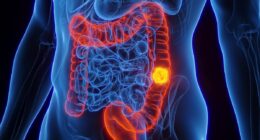Whether plunging themselves into ice baths or deliberately hyperventilating and then holding their breath, devotees of “The Iceman” Wim Hof are evangelical about the physical and mental benefits these practices bring. A new study suggests they may indeed reduce levels of inflammation in the body. However, experts stress that practising the Wim Hof method is not without risk.
Hof is a Dutch athlete, best known for record-breaking feats such as swimming under ice and running barefoot on ice and snow. More recently, he has built a business empire on the techniques he uses – which focus on a commitment mastering conscious breathing and cold exposure – with courses available around the world.
While previous studies have tried to assess the physiological and psychological impact of these techniques, these have generally been too small to draw firm conclusions. So, Dr Omar Almahayni and Dr Lucy Hammond from the University of Warwick systematically reviewed the data from eight published trials to try to identify consistent trends.
Their findings, published in PLOS ONE, suggested that the most prominent changes seen in people practising the Wim Hof method were an increase in the stress hormone adrenaline and anti-inflammatory chemicals called cytokines, and a reduction in pro-inflammatory cytokines. The impact on exercise performance was less clear, with some studies showing improvements in, eg breathing intensity, and others finding no significant difference.
Almahayni and Hammond said the study provided “valuable insights into [the method’s] potential as a complementary approach to wellness”. However, they added that further research into its effects on stress, inflammation and overall health was needed.
Dr Matthijs Kox, an immunologist at the intensive care department of Radboud University medical centre in the Netherlands, said: “I think it is still early days to make a balanced scientific judgment about what the method might and might not do, but as far as inflammation goes, I think we’ve now got quite convincing evidence that it has the ability to dampen inflammation in an acute, ie short-term setting.”
His research has shown that Hof’s breathing techniques trigger the release of large amounts of adrenaline – a key component of the fight or flight response – and as adrenaline is known to dampen inflammation, he believes this may be the mechanism at play. Cold immersion training and breathing exercises may also increase people’s pain thresholds, Kox found.
“I think the next step should be testing the Wim Hof method in a randomised controlled trial involving patients with a chronic inflammatory condition such as rheumatoid arthritis, to see if they benefit,” Kox added.
However, Prof Mike Tipton of the University of Portsmouth’s Extreme Environments Laboratory cautioned that the reviewed studies generally compared the impact of practising the Wim Hof method against doing nothing. “One would be surprised if there weren’t differences between a group that does nothing and one that does eight weeks of training, or two hours of training for four days,” he said.
“This methodological approach tells us nothing about the relative benefits against other interventions such as yoga, swimming in an indoor pool, 30 minutes walking a day or soccer. This is important because the Wim Hof method is not without risks. If the claimed benefits can be achieved by a lower-risk activity, this would be advisable.”
He added that the assumption that the Wim Hof method was safe for all was also open to challenge: “For example, standing in snow barefoot for 30 minutes introduces the risk of cold injury. Plunging into cold water introduces the risks of drowning and cardiovascular problems.”
Tipton stressed that anyone considering such behaviours should first consult a GP, and take further measures to ensure their safety – including getting out of cold water before experiencing numbness, pain or shivering.




